This post may contain affiliate links, read my disclosure policy for details.
With how simple it is to make oat flour at home, you’re going to be saving the time spent going to the store and the money by making your own! Here’s how you can make flour from oats!
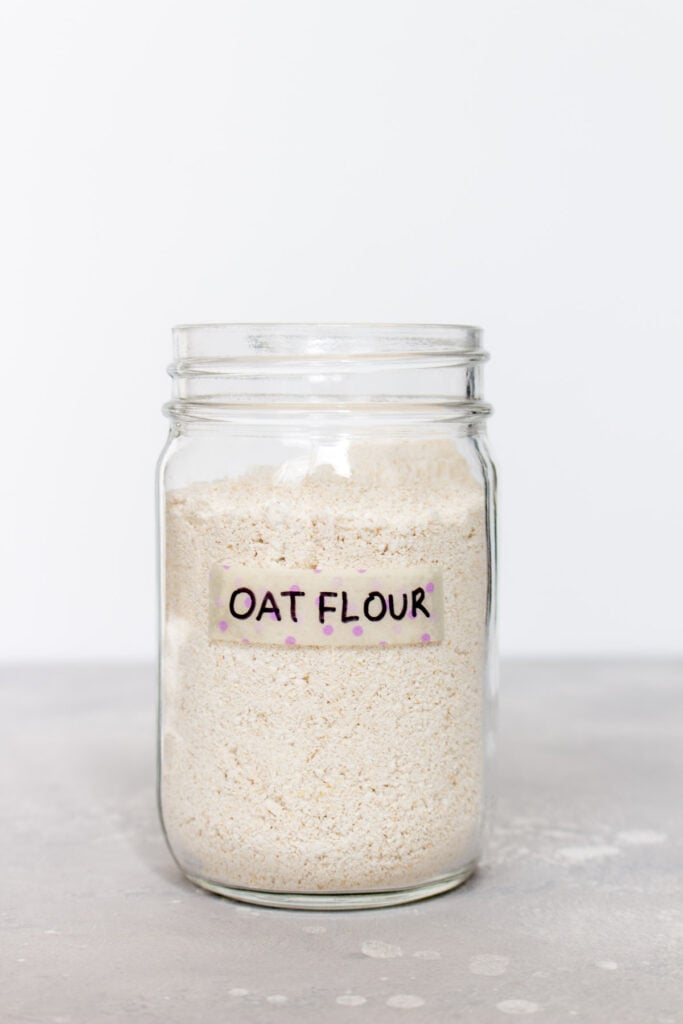
Table of Contents
- What is Oat Flour?
- Is Oat Flour Gluten Free?
- What Type of Oats are Used for Oatmeal Flour
- What You’ll Need To Make Oat Flour
- How To Make Homemade Oat Flour
- How To Store Homemade Oatmeal Flour
- Tips For Making the Easiest Homemade Oat Flour
- How to Make Oat Flour Without a Blender
- How to Use Oat Flour in Recipes
- How to Make Oat Flour Recipe
What is Oat Flour?
Oat flour is a whole grain flour made from grinding up oats. It’s really that simple – all you’ll need to make oat flour is oats!
Of course, made from oats, it has a light oat-like flavor to this when used. It also has the nutritional benefits of oatmeal since it’s made from oats! Oat flour contains more protein, fibre, and vitamins than regular all purpose flour.
Have extra oats? Try making Oat Milk!
Is Oat Flour Gluten Free?
Oatmeal is naturally gluten-free which makes the oat flour naturally gluten-free. However, if you plan on using this to make something for someone who cannot consume gluten, I suggest you look for “certified” gluten-free oats. Due to cross contamination from where oats are processed, wheat may come into contact with oats!
What Type of Oats are Used for Oatmeal Flour
You can make oat flour from old fashioned rolled oats, quick oats, and steel cut oats! Steel cut oats do yield more flour than rolled oats and rolled oats yield a smidge more than quick oats. Use whichever you have on hand.
What You’ll Need To Make Oat Flour
The ingredients
Oats – I prefer using rolled oats to make oat flour but you can use what you have on hand.
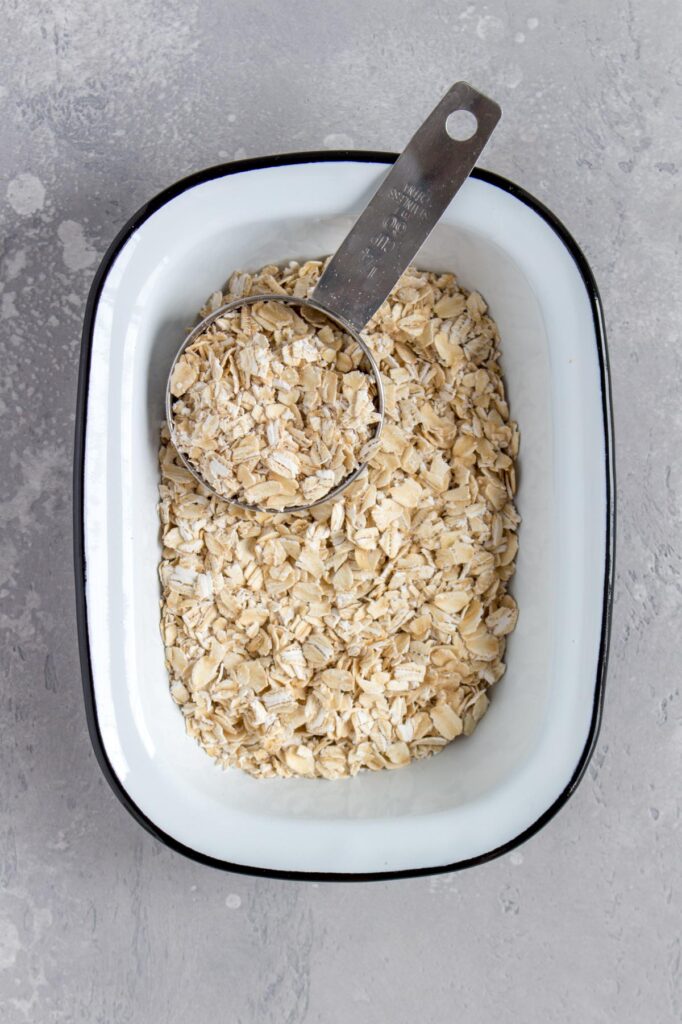
The Equipment
Blender – I use a Vitamix but you can use any high powered blender or food processor of your choice.
Container – You’ll need an airtight container to store your oat flour in. You could use a mason jar or ziploc bag.
How To Make Homemade Oat Flour
- To your blender, add in the oats.
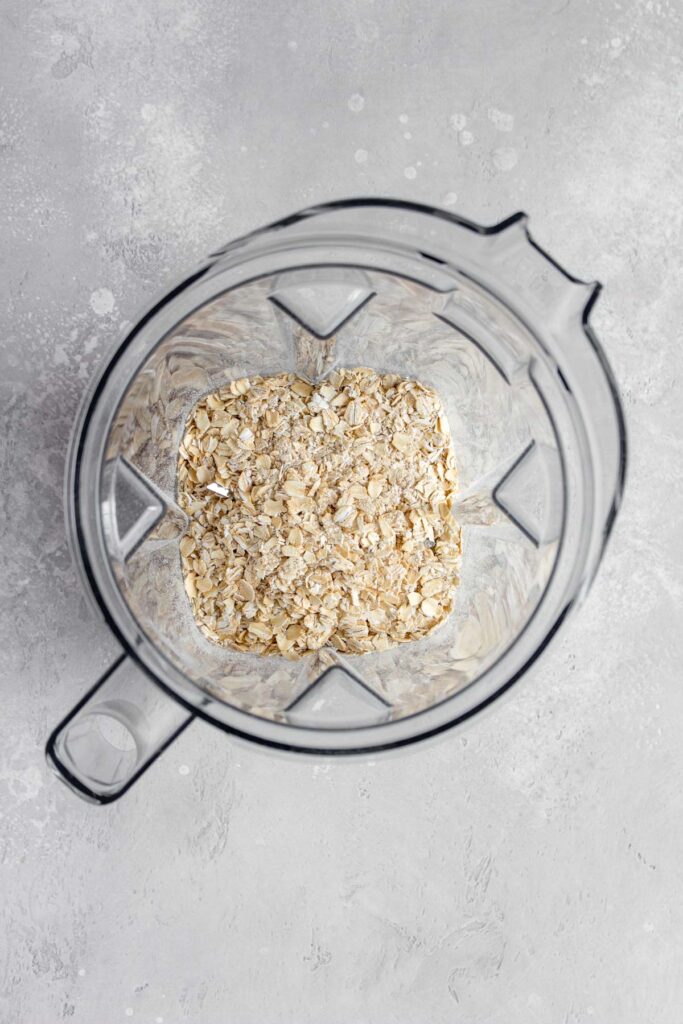
- Blend until the oats have turned into a fine flour, about 20 seconds to 1 minute.
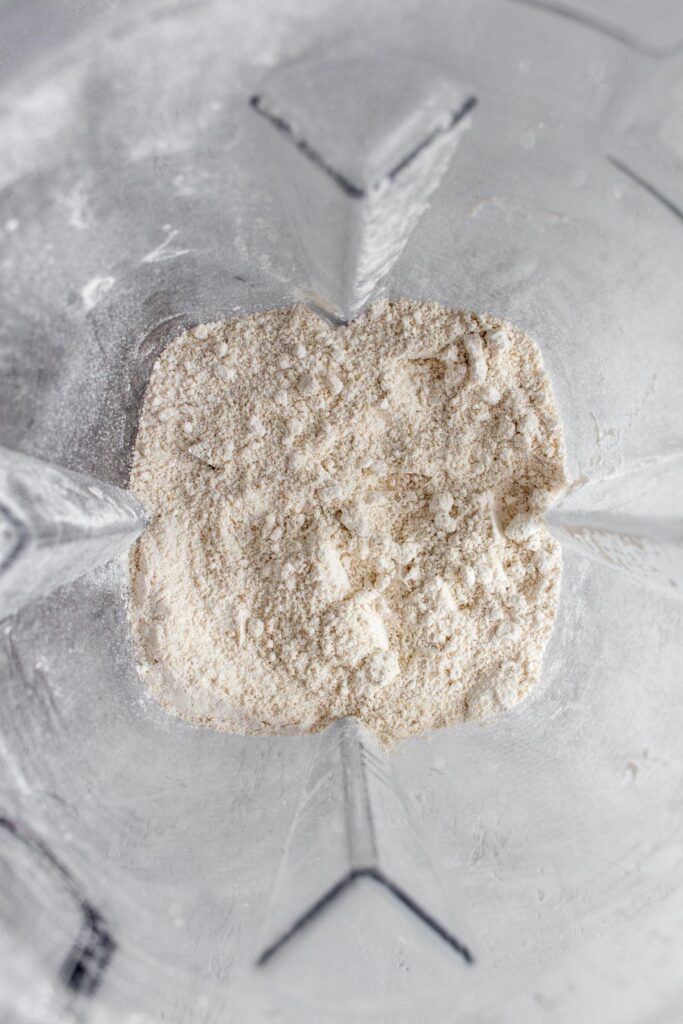
- Making sure all the oats have been blended up, transfer and store the oat flour in an airtight container in the refrigerator.
How To Store Homemade Oatmeal Flour
It is best to store your oat flour in the fridge in an airtight container. You can also store the oat flour in the freezer for maximized freshness. The natural oils break down the flour quicker compared to processed all flour flour which is why I store mine in a cool, dark place for up to 3 months. If stored in the pantry, I’d use the flour within the month.
Tips For Making the Easiest Homemade Oat Flour
For the best results, I recommend a high speed blender as it takes a minute or less to grind up the oats compared to regular blenders.
For the quickest and most uniform oat flour, I suggest you don’t fill your blender more than half way.
Make sure your blender is 100% dry before making flour to avoid extra moisture and clumping.
How to Make Oat Flour Without a Blender
While I recommend a blender, if yours is out of commission, you may be able to use a spice grinder or a coffee grinder in its place. While I haven’t tried this personally, it could work in a pinch. I’d also go through the extra steps to sift through the oat flour before using to make sure there aren’t any larger oats missed in the flour.
How to Use Oat Flour in Recipes
I suggest if you are replacing all purpose flour with oat flour in a recipe, to substitute the flour via weight instead of volume. A cup of all purpose flour weighs more than oat flour so you’ll need more.
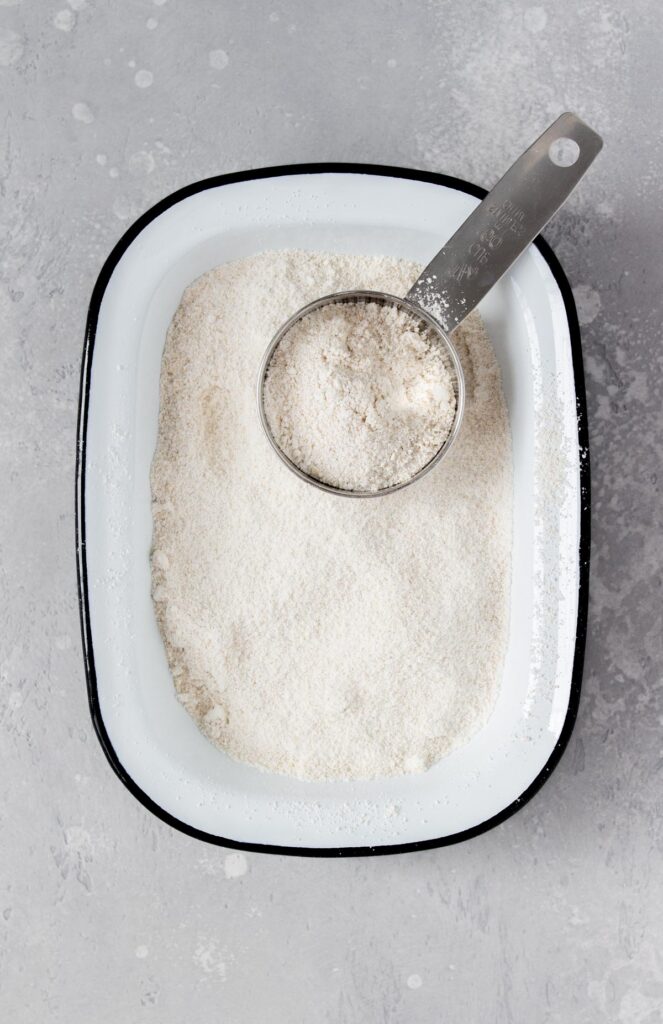
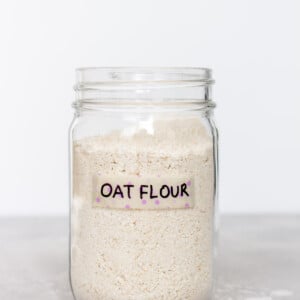
How to Make Oat Flour
Equipment
- Blender
Ingredients
- 1 cup rolled oats
Instructions
- To your blender, add in the oats.
- Blend until the oats have turned into a fine flour, about 20 seconds to 1 minute.
- Making sure all the oats have been blended up, transfer and store the oat flour in an airtight container in the refrigerator.

